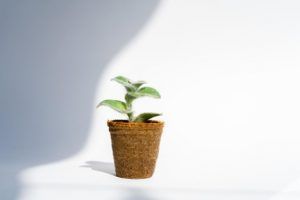
Lockdown and Covid-19 have forced us to reevaluate the way we live our lives. Work/life balance is suddenly more important, spending time with those you love is a priority, and getting fit is something we’re putting effort into.
But have you considered going green? The environment flourished during lockdown, and it opened many eyes to the way we treat our beautiful planet.
Thankfully, it’s not that hard to turn your home into a green home. It requires some change, but many of the smallest changes can have the biggest effects.
Here are some small things you can do to keep your home green.
Insulate your House
If you live somewhere particularly warm, chances are your air conditioning unit gets plenty of use. On the other hand, if you live in a cold place, your thermostat is probably always on high.
You can lower your energy costs and your carbon footprint by insulating your home so you don’t need to heat or cool it as much.
Insulation is helpful for cold climates as it prevents warmth escaping. There’s less need to turn the thermostat up, as the natural heat stays inside the house.
But it can also be helpful for hot weather. You may only need a fan instead of constant air conditioning, as the heat isn’t getting in and the cool isn’t getting out.
Install a Water-Saving System
Something as small and simple as saving your gray water to be repurposed can have a huge effect on the environment.
Installing a system that stores the excess water from your basins, showers, dishwashers, and washing machines can save you a huge amount of water.
You can use this stored water to wash your car, water the garden, do other things with. You may also find that your water bills are significantly lowered once you have this kind of system in place.
Change to Energy-Efficient Light Bulbs
This is one of the smallest changes you can make, and yet it can have a large impact. Think about how often during a day you and your family switch lights on and off.
An energy-efficient light bulb has a small amount of gas (mercury vapor) and argon inside the glass tubes. When an electrical current is sent to it, it produces invisible ultraviolet light, which reacts with the coating (phosphor) to create visible light.
This is different to regular light bulbs, which use heat to create a glow. They use much more electricity when generating heat.
Go Zero-Waste
Going zero-waste may need some research, planning, and it will definitely need constant work until it becomes a habit.
But it’s worthwhile, because much of what we throw away ends up in landfills and lives there for decades, if not centuries.
A good first step would be to stop using plastic. I know it can be hard, because so many things are packaged in plastic! But the first step could be using paper shopping bags instead of plastic ones.
If you’re lucky enough to have a zero-waste store nearby, I’d suggest becoming a frequent customer! Not only will you find that it’s not as hard as you think, but you may also meet new people who can support you along the way.
Go Solar
If you’re serious about cutting your energy usage and helping the environment, installing solar panels could be a good choice.
Solar energy is renewable, and you can harness it anywhere. Even in places where it’s on the rainy and cold side, the sun is still there, although it may be less effective.
You may worry about this being a big expense. But learning how to use your solar panels the right way and storing excess energy in the power grid can help you save significantly on your energy bills.
If this is a huge expense for you, you may want to start off by getting a solar cellphone charger, or a solar-powered lamp, to begin.
Conclusion
It’s not that difficult to keep your home green! It’s all about small changes, at least in the beginning. You don’t need to go and deck your home out with solar panels tomorrow.
But small efforts like avoiding plastic shopping bags and using energy-efficient light bulbs can make a difference! Not only to your bank account, but more importantly, to the beautiful planet on which we reside.
Bio:
Jordan Fuller is a golf enthusiast who is as passionate about the environment as he is about the game. You can find his advice, tips, and tricks on Golf Influence.


























